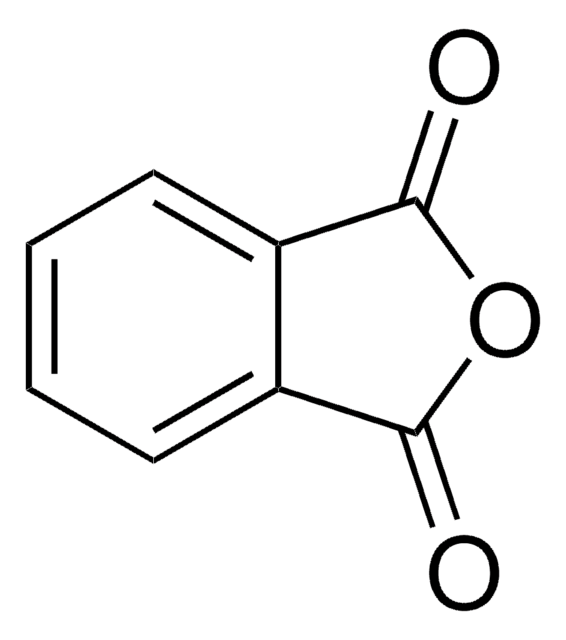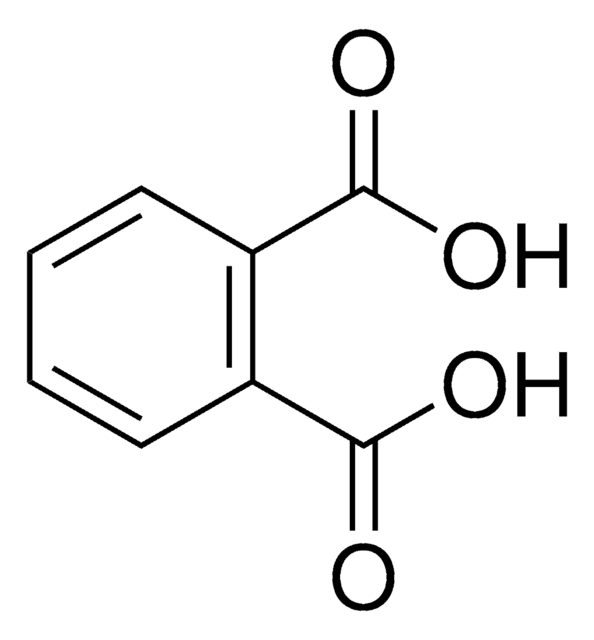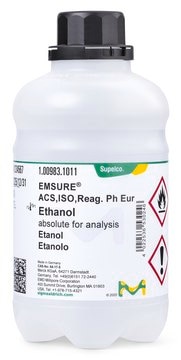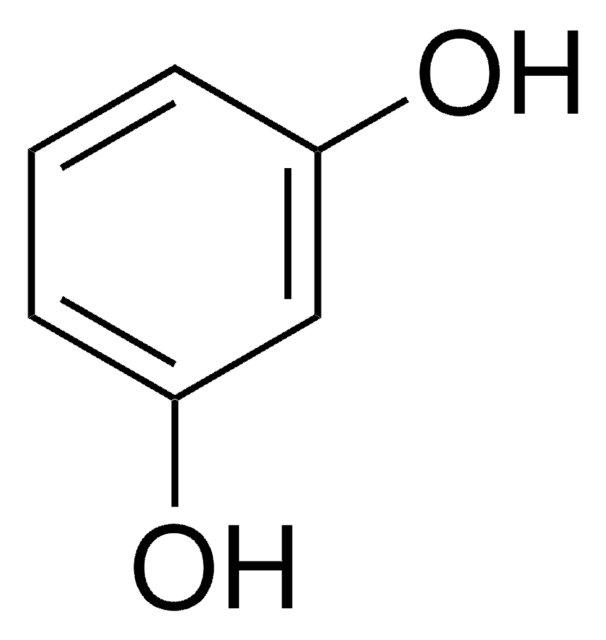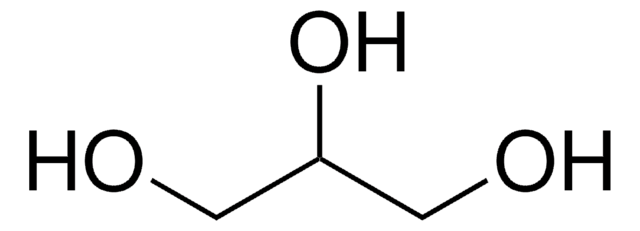8.00592
Phthalic anhydride
for synthesis
Synonym(s):
Phthalic anhydride
About This Item
Recommended Products
vapor pressure
<0.01 hPa ( 20 °C)
Quality Level
form
crystals
autoignition temp.
580 °C
potency
1530 mg/kg LD50, oral (Rat)
>3160 mg/kg LD50, skin (Rabbit)
expl. lim.
1.7-10.5 % (v/v)
pH
2 (20 °C, 6 g/L in H2O)
bp
285 °C/1013 hPa
mp
131 °C
transition temp
flash point 152 °C
solubility
6 g/L (slow decomposition)
density
1.527 g/cm3 at 20 °C
bulk density
500‑700 kg/m3
storage temp.
no temp limit
InChI
1S/C8H4O3/c9-7-5-3-1-2-4-6(5)8(10)11-7/h1-4H
InChI key
LGRFSURHDFAFJT-UHFFFAOYSA-N
Related Categories
Application
<li><strong>Antibacterial and cytotoxic activity of chitosan derivatives:</strong>Phthalic anhydride-modified chitosan derivatives exhibit significant antibacterial and cytotoxic properties, suggesting their potential application in medical and pharmaceutical products (Sousa et al., 2024).</li>
<li><strong>Heterodinuclear Polymerization Catalysts:</strong> Research identified Al(III)/K(I) polymerization catalysts that utilize phthalic anhydride for producing high-quality polyester polyols, offering advancements in polymer synthesis technology (Shellard et al., 2024).</li>
<li><strong>Advanced epoxy vitrimers:</strong> Phthalic anhydride was used in the design and synthesis of advanced epoxy vitrimers with enhanced glass transition temperatures, important for applications requiring high-performance thermoset polymers (Dai et al., 2023).</li>
<li><strong>Sustainable alkyd resins:</strong> The utilization of phthalic anhydride in the production of alkyd resins from bio-based resources represents a significant move towards more sustainable and environmentally friendly coating applications (Dizman and Cerrahoglu Ka and ccedil;akgil, 2023).</li>
</ul>
Analysis Note
Melting range (lower value): ≥ 129 °C
Melting range (upper value): ≤ 133 °C
Identity (IR): conforms
signalword
Danger
Hazard Classifications
Acute Tox. 4 Oral - Eye Dam. 1 - Resp. Sens. 1 - Skin Irrit. 2 - Skin Sens. 1 - STOT SE 3
target_organs
Respiratory system
Storage Class
8A - Combustible, corrosive hazardous materials
wgk_germany
WGK 1
flash_point_f
305.6 °F - DIN 51758
flash_point_c
152 °C - DIN 51758
Certificates of Analysis (COA)
Search for Certificates of Analysis (COA) by entering the products Lot/Batch Number. Lot and Batch Numbers can be found on a product’s label following the words ‘Lot’ or ‘Batch’.
Already Own This Product?
Find documentation for the products that you have recently purchased in the Document Library.
Customers Also Viewed
Our team of scientists has experience in all areas of research including Life Science, Material Science, Chemical Synthesis, Chromatography, Analytical and many others.
Contact Technical Service